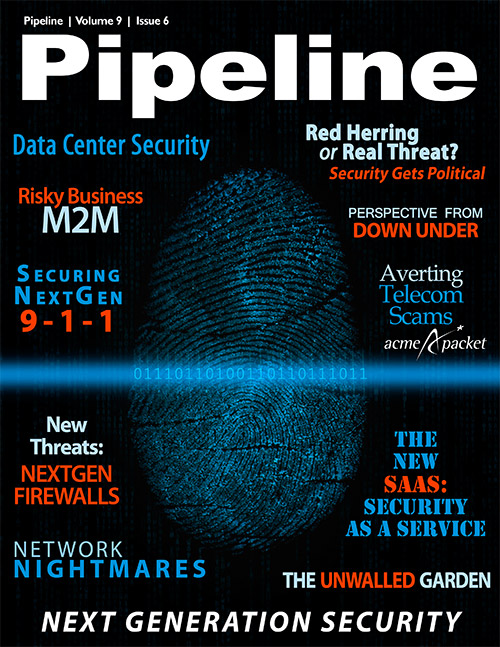SaaS Security: The Sensible Solution
By: Becky Bracken

It’s a natural evolution, really. Now that we’ve unlocked the key to flinging data all over the place — from the cloud to mobile devices and back again — the next question, naturally, is how to
keep that data secure while it’s being flung far and wide.
Particularly in North America, the mobile-enabled workforce is taking shape. It’s also what’s driving the BYOD frenzy. Almost every job can be made that much easier with a mobile handheld
computer — and everyone has their own brand of choice. Businesses understand that employees armed with smartphones are productive, happier and cost less to manage.
Frost & Sullivan’s survey of 300 mobile and wireless decision makers revealed that while 35 percent of businesses have deployed MWFM applications, many have delayed adoption because they lack
the in-house expertise to deploy. SaaS, or Security as a Service, solutions allow in-house IT departments to focus on business- and industry-specific tasks.
The question is one of security. Keeping business data in the cloud and offering many employees access to that data demands thoughtful security considerations. Security as a Service is shaping up
to be an attractive solution for enterprises today to easily and cheaply solve their individual — and constantly emerging — security issues.
Infonetics reports that the mobile segment of the security client market jumped an astounding 76 percent in 2011, and predicts continued double-digit growth through 2016, five times faster than
the desktop segment. Mobile security is driving the market, and the industry is turning its attention to creating the solutions.
“Coming off the spike in 2011, the perennially strong desktop-security client segment is slowing as companies turn their attention to mobile and cloud-based security solutions,” noted Jeff
Wilson, principal analyst for security at Infonetics Research. “More and more consumers and enterprises are using smartphones and tablets in place of traditional desktops and laptops, fueling an
increase in mobile malware and the need for mobile-specific security products. As a result we expect mobile solutions to grow to over a third of the total security-client software market by
2016.”
Major mobile carriers are working to meet the changing demand for mobile SaaS solutions, and rushing to partner with SaaS providers to offer customers a mobile app for smartphones to protect
against malware. Verizon worked with McAfee and Asurion to develop Verizon Mobile Security, a new app for Android 2.1 and higher that protects against malware and other threats.





















